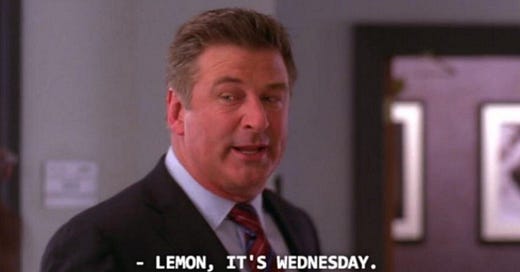Cutting through the noise
The key stories we’re following that will shape the future of New York
RSVP now to our next happy hour on February 10th. In addition to our usual socializing, we’ll be talking about the importance of Community Boards to the abundance agenda. If you want to join your CB but we haven’t been in touch with you about applying, reply to this and tell us!
What a year, huh? Well, to paraphrase Jack Donaghy: Readers, it’s January.
For those of us who want to stay on top of important developments from DC, Albany, and City Hall, the last few weeks have been a maelstrom.
Executive orders are challenging core American institutions; state and city budgets are starting policy fights; campaign filings are revealing the contours of races up and down the ballot. It’s been overwhelming for us to think about how to summarize even the subset of news that connects to abundance in New York.
To cut through the noise, we decided to pull out a few key storylines we’re following this year—with the TL;DRs of the last few weeks and some opportunities to go deeper if you want.
🟧 What Trump 2.0 means for New York
One week into the new administration, many New Yorkers are unsettled about what Trump 2.0 will mean for the city—potential mass deportations, further reductions of abortion access, slashed federal funding, and more.
Additionally, Trump has said he wants to kill congestion pricing (though it’s not yet clear if he can). He’s already jettisoned offshore wind approvals we need to meet our climate goals (though that plug-pulling will face legal pushback).
➡ ️Go deeper: Congestion pricing might be harder to kill as it gains more support. It’s still too early for real data about its impact on traffic, but so far New Yorkers are reporting whizzing buses and shorter commutes. Traffic violence is down by 50% in the zone, and new studies show that fewer cars do not translate into losses for local businesses. We’ll be watching and sharing as more data comes in—along with, we hope, more capital funding for the MTA.
🏛️ Local legislative sessions
Here at home, Governor Hochul and Mayor Adams both unveiled their annual budgets, drawing mixed reviews for relatively stable spending.
Beyond funding levels, state lawmaking overall is largely driven by the governor's budget proposal. This year, Hochul punted on the state’s planned cap-and-invest program to raise money for renewables and proposed limited actions to boost housing supply. (On the plus side, she did include a low-cost loan fund to speed development.)
➡ ️Go deeper: It’s not just the governor’s proposals that could become state law this session. Abundance advocacy groups are pushing important bills—to allow faith institutions to build affordable housing on their land, to automate curb lane enforcement, to end requirements for emission-generating gas hookups, and more. We’ll be helping make the case that these individual bills are part of one abundance agenda to improve affordability, quality of life, and our long-term security.
🏃♀️ 2025 races
We’re less than five months from primary day, and the mayoral race is unsettled.
Polling shows ex-governor Andrew Cuomo leading, though he isn’t formally in the field. Adams, nuzzling the new president, seems more invested in a pardon than in reelection—perhaps a reflection of his poor showing in the polls. Comptroller Brad Lander joined his predecessor Scott Stringer in securing matching funds, while (initial-twin) state legislators Zohran Mamdani and Zellnor Myrie both raised well enough to qualify for matching funds needed to raise their profiles.
Downballot, city council races will determine how pro-housing, pro-transit, and pro-public space the next council is. Over 75% of the seats are being defended by incumbents, though, so changes may be minimal.
➡ ️Go deeper: We highly recommend the New York Editorial Board’s interviews with mayoral candidates—Lander and State Senator Jessica Ramos, so far—picking up where the New York Times left off when it decided to stop endorsing in local races. You can also listen to quick convos with Mamdani, Myrie, and Lander on Brian Lehrer. Before too long, we’ll share more about how the candidates from council to mayor stack up on abundance.





